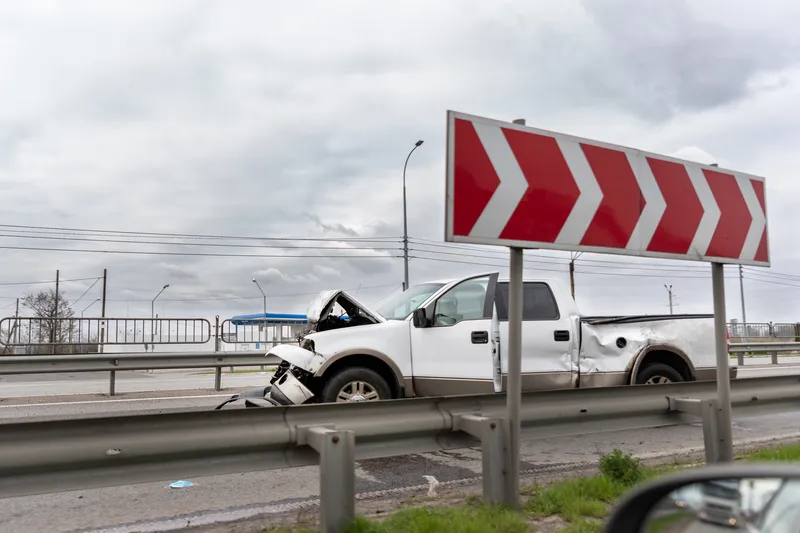Following new research from psychologists at the University of Sussex, road safety charity Brake has renewed its calls for the UK government to look again at the laws around driving and mobile phone use.
The study, published in the Transportation Research Journal, shows that drivers who are engaged in conversations that spark their visual imagination are much less able to spot and react to potential hazards. When the drivers involved in the study were asked about a subject that required them to visualis
June 8, 2016
Read time: 3 mins
Following new research from psychologists at the University of Sussex, road safety charity 4235 Brake has renewed its calls for the UK government to look again at the laws around driving and mobile phone use.
The study, published in the Transportation Research Journal, shows that drivers who are engaged in conversations that spark their visual imagination are much less able to spot and react to potential hazards. When the drivers involved in the study were asked about a subject that required them to visualise it, they focussed on a smaller area of the road ahead of them and failed to see hazards, even when they looked directly at them.
The researchers claim their evidence shows conversations may use more of the brain’s visual processing resources than previously understood. Having a conversation which requires a driver to use their visual imagination creates competition for the brain’s processing capacity that is also focussing on driving. This results in drivers missing road hazards that they might otherwise have spotted.
This is the latest study to look at the increased dangers involved with driving and mobile phone use. Previous research has estimated that up to 22 per cent of crashes could be caused by some kind of distraction and drivers who perform a secondary task at the wheel, like using a mobile, are up to three times more likely to crash.
Also, the effect of talking on a phone while driving has already been shown to be worse than drinking certain amounts of alcohol. Driver reaction times are 30 per cent slower while using a hands-free phone than driving with a blood alcohol level of 80mg alcohol per 100ml blood (the current limit in England and Wales), and nearly 50 per cent slower than driving under normal conditions.
As well as disproving the popular misconception that using a mobile phone while driving is safe as long as it’s hands-free, the researchers from Sussex also say there are still differences between a hands-free conversation and a chatty passenger. A passenger will usually moderate the conversation when road hazards arise, whereas someone on the other end of a phone is oblivious to the other demands on the driver and so keeps talking.
Lucy Amos, research advisor for Brake, said: “Distracted driving is a major cause behind road crashes; pulling the drivers’ attention away from the road and its potential hazards, potentially leading to fatal outcomes. This new study is only the latest of many which adds weight to extending the existing legislation to cover all mobile phone use within a vehicle, not just the use of hand-held mobile devices. We call on the government to take action and remove the clear and present danger of mobile phones on our roads.”
The study, published in the Transportation Research Journal, shows that drivers who are engaged in conversations that spark their visual imagination are much less able to spot and react to potential hazards. When the drivers involved in the study were asked about a subject that required them to visualise it, they focussed on a smaller area of the road ahead of them and failed to see hazards, even when they looked directly at them.
The researchers claim their evidence shows conversations may use more of the brain’s visual processing resources than previously understood. Having a conversation which requires a driver to use their visual imagination creates competition for the brain’s processing capacity that is also focussing on driving. This results in drivers missing road hazards that they might otherwise have spotted.
This is the latest study to look at the increased dangers involved with driving and mobile phone use. Previous research has estimated that up to 22 per cent of crashes could be caused by some kind of distraction and drivers who perform a secondary task at the wheel, like using a mobile, are up to three times more likely to crash.
Also, the effect of talking on a phone while driving has already been shown to be worse than drinking certain amounts of alcohol. Driver reaction times are 30 per cent slower while using a hands-free phone than driving with a blood alcohol level of 80mg alcohol per 100ml blood (the current limit in England and Wales), and nearly 50 per cent slower than driving under normal conditions.
As well as disproving the popular misconception that using a mobile phone while driving is safe as long as it’s hands-free, the researchers from Sussex also say there are still differences between a hands-free conversation and a chatty passenger. A passenger will usually moderate the conversation when road hazards arise, whereas someone on the other end of a phone is oblivious to the other demands on the driver and so keeps talking.
Lucy Amos, research advisor for Brake, said: “Distracted driving is a major cause behind road crashes; pulling the drivers’ attention away from the road and its potential hazards, potentially leading to fatal outcomes. This new study is only the latest of many which adds weight to extending the existing legislation to cover all mobile phone use within a vehicle, not just the use of hand-held mobile devices. We call on the government to take action and remove the clear and present danger of mobile phones on our roads.”









